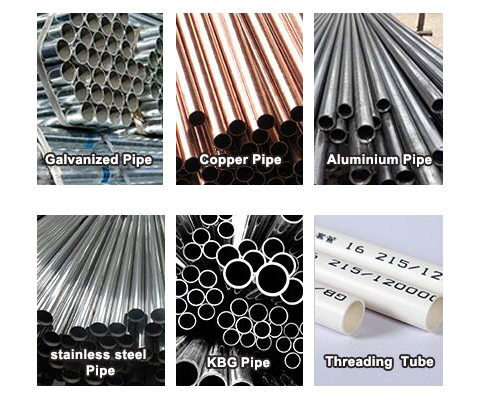What is a Pipe Bender?
A pipe bender is a tool or machine used to bend pipes or tubes into specific angles or shapes without causing damage or compromising the pipe's structural integrity. Pipe benders are essential in various industries, including plumbing, construction, and metalworking, where precise bends are required for installing or assembling piping systems. ATO online store will bring some introductions about pipe benders.
Types of Pipe Benders
Manual Pipe Bender
Manual pipe benders come in various types, including lever-operated models and pipe bending jigs. Lever-operated benders utilize a manual lever to bend the pipe, making them ideal for smaller diameters and lighter materials. For example, a 25mm manual pipe bender is a common type. On the other hand, pipe bending jigs are straightforward devices where the pipe is bent by applying force manually or using a bending form.
Hydraulic Pipe Bender
Hydraulic pipe benders employ hydraulic pressure to achieve bending, providing greater power and precision compared to manual methods. This makes them particularly suitable for handling larger pipes and executing more complex bends with ease. By leveraging hydraulic force, these benders can efficiently shape pipes to precise specifications.
Electric Pipe Bender
Electric pipe benders are powered by electric motors, allowing for automated and consistent bending processes. This automation can efficiently handle large quantities of pipes with precision and uniformity. By eliminating the variability of manual operation, electric pipe benders ensure reliable and repeatable results, streamlining the production workflow for various applications.
Rotary Draw Bender
Rotary draw benders utilize a rotating die paired with a stationary bending die to achieve highly precise bends. This mechanism allows for intricate and tight-radius bends with exceptional accuracy.
Applications
Pipe benders are versatile tools used in various industries and applications to shape pipes and tubes into specific angles or curves. Here are some common applications of pipe bending machines:

Plumbing:
- Water Supply Lines: Bending pipes to fit through walls, around corners, or into tight spaces for water supply and drainage systems.
- Heating Systems: Creating custom bends for radiator pipes and underfloor heating systems.
Construction:
- Structural Steel Work: Bending metal pipes and tubes for constructing frames, supports, and handrails in buildings and bridges.
- Scaffolding: Fabricating curved components for scaffolding systems.
Automotive:
- Exhaust Systems: Shaping exhaust pipes and headers to fit around engine components and chassis.
- Custom Fabrication: Creating custom pipes for performance upgrades, roll cages, and other modifications.
Manufacturing:
- Furniture Production: Bending metal tubes for chairs, tables, and other furniture items.
- Product Design: Creating custom shapes for various products and components.
Agriculture:
- Irrigation Systems: Bending pipes to create irrigation systems for fields and greenhouses.
- Farm Equipment: Custom bends for various farm machinery and equipment.
Pipe benders play a vital role in ensuring that pipes and tubes meet the specific requirements of different applications, providing both functional and aesthetic benefits. Proper use of a pipe bender ensures that pipes are bent accurately and consistently, reducing the risk of kinks, weak points, or structural failure.

